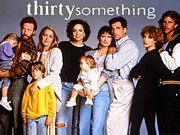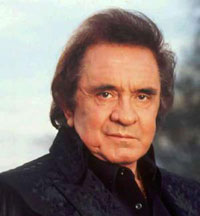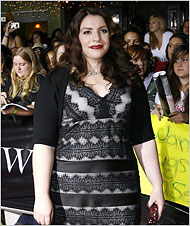
As I have impatiently counted down the days to the DVD release -finally – of one of the best shows ever on television, I have enjoyed reading much of the commentary in the media about the impact of “thirtysomething.” I think most reviewers are in agreement that almost every critically-acclaimed show from the 90s to present day has been influenced by this one drama to some degree. An ensemble show about a group of friends who are really more like a family? Well, before “Seinfeld,” “Sex and the City” and “Friends,” some of us hung on every word between Hope, Michael, Elliott, and Nancy. A drama about the cultural perils of working in an ad agency? Look out Don Draper, you obviously haven’t met evil ad exec Miles Drentell. And besides, how many TV shows can say they officially became a new word in the dictionary?
I am only just beginning to work my way through all of the episodes – plus bonus footage and commentary – but the question still lingers between those that love the show and those that believed it was a self-absorbed examination of nothing: Was “thirtysomething” truly soulful or was it really just soulless in its examination of the mores of the time?
I have to admit I was not one of those fans that loved the show from the first episode forward. The conflict in the first episode was basically centered around Hope finding a babysitter. Characters whined too much – about everything – when they actually had so much to be thankful for, including a super-expensive baby stroller. (Then again, I wasn’t in my thirties when the show came out, so I had yet to experience the daily struggles these characters had.)
It was the dissolution of Nancy and Elliott’s marriage that sucked me in. The story played out through all four of the seasons and made neither side the villain. Instead, each selfish choice the couple had made was examined in thoughtful detail . Better yet, the couple had the courage to slowly piece the marriage back together again the harrowing backdrop of Nancy’s cancer. Watching Elliott regain his soul through this process was riveting television and nothing quite like that storyline had been done before – especially with the fourth season plot twist that people talked about for weeks after it happened.
To those who don’t have any memories of the show, it’ll be interesting to hear reactions about whether the show feels outdated and self-important or if it feels like a mastepiece that has been in hiding. Do we still see our own moral dilemmas through the eyes of the yuppified Gen Xers of the 80s? Have we progressed at all in how we balance work, family, faith and community?
Sometimes I wonder if Michael & Hope’s little Janey grew up to become a dissaffected, entitled millenial or if she grew up to be the socially-consious, impassioned millenial that eschews all of her parents material trappings. Have Hope and Michael lost everything in their retirement plan due to the economy so they are living in a – gasp- condo in a suburb?
While most series reunions are a terrible idea, and despite producers Ed Zwick and Marshall Herskovitz’s protestations of doing a reunion, I think a new show called “fiftysomething: the sandwich generation” sounds pretty interesting to me.



